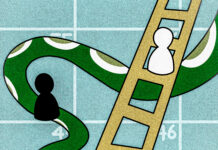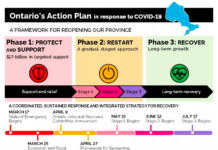“Those who cannot remember the past are doomed to repeat it,” a quote made famous by the philosopher George Santayana, is one that implies that enlightenment is the key to progress — or, at the very least, crucial to preventing regression. However, we are only taught the sliver of history that pertains to us, and we may sometimes dismiss the remainder of it as “fun facts” or downright unnecessary. Yet every sliver of history defines aspects of lives to this day, and even though we may not directly experience the events of the past, it would do us well to remember them.
The Day of the Catastrophe (Al-Nakba) is a portion of history that is often only told or taught by those who experienced it to those in their lineage; it is a story that travels through word of mouth, despite representing an exodus that dispelled 700,000 Palestinians from their homes, encompassing the destruction of hundreds of Palestinian towns and villages. This, all during the 1948 Palestinian War, illustrated the brutality endured by the Palestinians during the creation of the state of Israel.
This is a story I learned of from my grandfather, who had experienced it firsthand along with his family. He retold the stories of the Battle of Haifa and the Deir Yassin Massacre. He showed me the key to the house his father owned, a house undoubtedly destroyed soon after the Israeli forces took over the city. He told me that he would go back and build a house for his key.
The Nakba is often commemorated May 15, a day that signifies the finality of the forces and certain world leaders’ decisions. It is also the day we remember how our freedom, our lives, and our heritage was taken from us.
On Thursday, May 15 at 7p.m. Students for Palestinian Rights will be holding a candlelight vigil at Waterloo Public Square in remembrance of Palestinians dispossessed in the Nakba and to bring to light the plight of the millions of refugees living in the resulting camps to this very day. The vigil will feature testimony from a survivor of the Nakba, as well as musical and spoken word performances from local artists.































